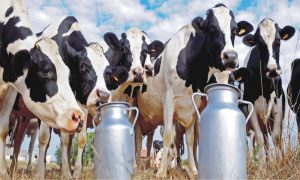
Ravensdown says the national trucking network could be facing the full brunt of Omicron in the next few months.
Chief executive Garry Diack says farmers late in ordering fertiliser and nutrients must act now.
“Those who are late in ordering their supplies need to speed up and get going while there is some integrity in the trucking fleet,” he told Rural News.
“That will come under a lot of threat in a month or two. Right now, based on a rating out of 10, I would say it’s a three or four – so things could get much worse.”
Diack says Omicron seems to be peaking in Auckland and the rest of the country will follow in the next few months, putting the trucking network and drivers under pressure.
“Of all the things happening right now, this is my biggest concern.”
Transport New Zealand chief executive Nick Leggett says the impact of Omicron has not yet had a significant impact on freight and transport services to rural areas and farms.
Transporting New Zealand participates in the twice-weekly Animal Sector Stakeholder Covid Roundtable, which is hosted by the Ministry for Primary Industries.
No major issues have been raised at that forum, he told Rural News.
“What has been most noticeable is the loss of capacity at processing plants as a result of Omicron and, as a consequence, we have had trucks loaded with stock turned away on arrival. We have worked to address that issue.”
Leggett is also calling for farmers to plan ahead but advises against stockpiling.
“It’s very important that anyone engaged in the supply chain plans ahead and recognises that delays are possible at any time.
“We recommend checking in with your road transport operators in advance to ensure they are tracking well and don’t have staff absences or cost impediments that may delay or disrupt your freight movement.”

























